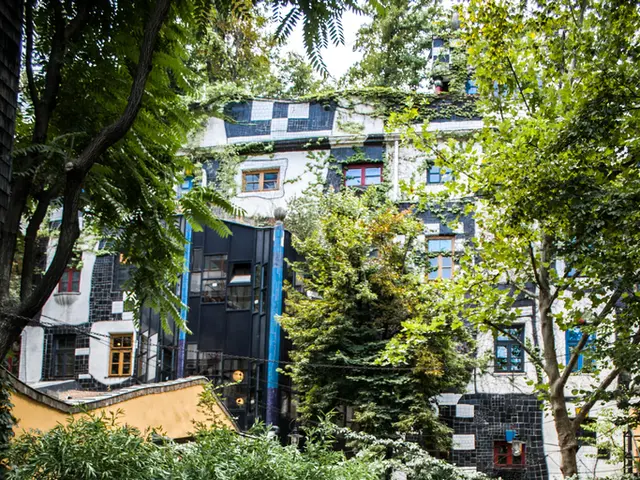Anticipated temperature rise: up to 40 degrees
The Krasnodar region in southern Russia is currently experiencing a significant weather anomaly, with forecasters issuing warnings of abnormal heat and drought. According to the Emergency Ministry, this heat wave is considered a dangerous phenomenon (DP) [1].
The prolonged hot and dry weather, with daytime temperatures well above +30°C and precipitation expected to be about half the average for July, increases the risk of wildfires, as already seen in southern Russia [1][2]. The Krasnodar Hydrometeorological Center advises residents to avoid direct sunlight and wear headwear to protect themselves from the intense heat.
However, coastal regions such as Anapa are expected to remain somewhat cooler, with average daytime temperatures around +26°C and nighttime temperatures between +20°C and +22°C. Despite this, the overall trend is for increased heat and aridity [1].
To stay safe during this heat wave, residents are encouraged to drink plenty of water throughout the day to prevent dehydration. Limit strenuous activities and direct sun exposure, especially during the hottest hours (10:00–16:00). Wearing light-colored, loose-fitting clothing and wide-brimmed hats is also recommended. Applying high SPF sunscreen is essential to protect the skin from harmful UV radiation [1].
The Municipal Crisis Management Center of Krasnodar reminds residents not to cool off in city fountains as the water contains chemicals. Additionally, it is not recommended to swim in the Kuban River due to unfavorable conditions. Strong currents and whirlpools pose a danger, making it unsafe for swimming [1].
The Emergency Ministry's heat wave warning is still in effect, but it does not apply to the Black Sea coast from Anapa to Magri and Sochi. June 2025 was the coldest June in Krasnodar in 70 years, according to Yuga.ru. The abnormal heat in Kuban is expected to last until July 11 [1].
Residents are urged to take these precautions seriously, as the combination of high temperatures and reduced rainfall heightens health risks, particularly for vulnerable populations. The increased risk of heat-related illnesses, respiratory issues, mental health problems, and wildfires underscores the importance of taking preventive measures during the ongoing heat wave [1][2].
[1] Krasnodar Krai experiencing significant weather anomalies in July 2025. (n.d.). Retrieved July 8, 2025, from https://www.weather.com/en-US/weather/news/news/2025-07-08-russia-heatwave-krasnodar
[2] Heatwave in southern Russia sparks wildfires. (2025, July 6). Retrieved July 8, 2025, from https://www.bbc.com/news/world-europe-57687206
- The unseasonable heat and drought in the Krasnodar region may have implications beyond weather-forecasting, as it could impact environmental-science and climate-change studies.
- In response to the heat wave, the focus of science and health-and-wellness communities might shift towards developing more effective therapies-and-treatments for heat-related illnesses and wildfires.
- As the weather anomaly persists, the Krasnodar region's weather patterns could be scrutinized by experts in environmental-science to understand any links between the rising temperatures, reduced precipitation, and potential long-term climate change impacts.
- The awareness raised by the heat wave about the interconnectedness of weather, health, and environment could spur more investment in scientific research related to health-and-wellness, climate-change, and weather-forecasting, with the aim of improving public safety and response strategies in the face of extreme weather events.




